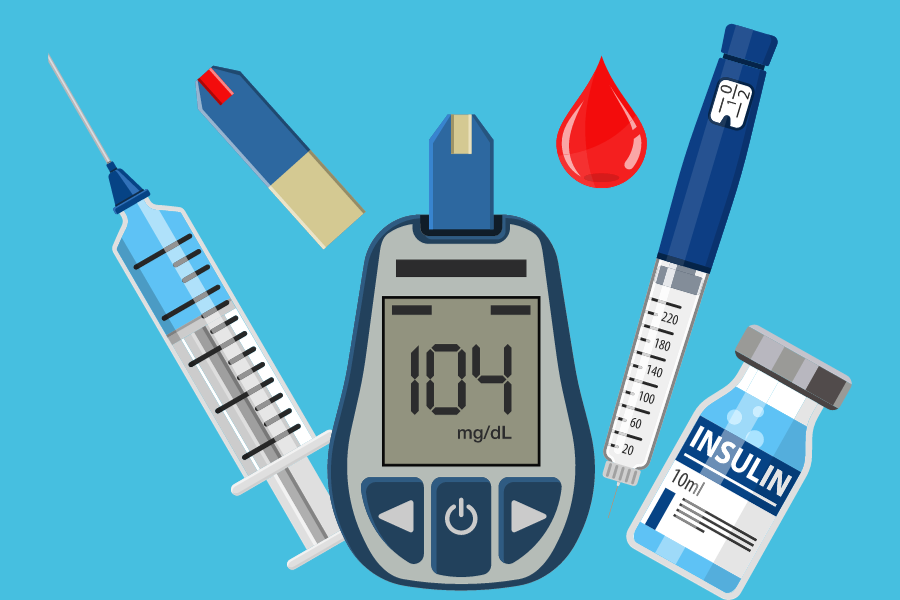Diabetes in Later Life

What is diabetes?
Diabetes is a chronic disease that's common among older adults. People get diabetes when their blood glucose, also called blood sugar, is too high. According to the National Council of Ageing, diabetes affects an estimated 33% of people aged 65 and older.
There are two main kinds of diabetes.
- Type 1 diabetes - a lifelong condition where the body's immune system attacks and destroys the cells that produce insulin
- Type 2 diabetes - where the body does not produce enough insulin, or the body's cells do not react to insulin properly
Type 2 diabetes is far more common than type 1. In the UK, over 90% of all adults with diabetes have type 2 (NHS, 2023).
Your chance of getting type 2 diabetes is higher if you are overweight, inactive, or have a family history of diabetes. Women with a history of gestational diabetes (a type of diabetes that develops during pregnancy) also have a greater chance of developing type 2 diabetes later in life.
What are the common symptoms of diabetes?
Diabetes symptoms in older adults can range from mild to severe. They include excessive thirst and urination, blurry vision, and fatigue.
The following information is from the NHS, if you are concerned about having diabetes, please follow the below guidance.
When to see a GP
Visit your GP as soon as possible if you experience the main symptoms of diabetes, which include:
- feeling very thirsty
- peeing more frequently than usual, particularly at night
- feeling very tired
- weight loss and loss of muscle bulk
- itching around the penis or vagina, or frequent episodes of thrush
- blurred vision
Type 1 diabetes can develop quickly over weeks or even days.
Weight loss is common in people with type 1 diabetes when it first develops and before it's treated, but it's less common in people with type 2 diabetes.
Many people have type 2 diabetes for years without realising because the early symptoms tend to be general, or there are no symptoms at all.
You may be more at risk of type 2 diabetes if you:
- are living with overweight or obesity
- do not have a healthy diet
- have a family history of type 2 diabetes
- are of Asian, Black African or African Caribbean origin
- take certain medicines such as steroids for a long time
- have high blood pressure
- have had gestational diabetes during pregnancy
For more information, visit NHS.co.uk
You can reduce the risk of type 2 diabetes through healthy eating, regular exercise and achieving a healthy body weight. Visit our Later Life Hub page for our top ten on staying healthy in later life and staying active in later life.
Page last updated: November 2023.

